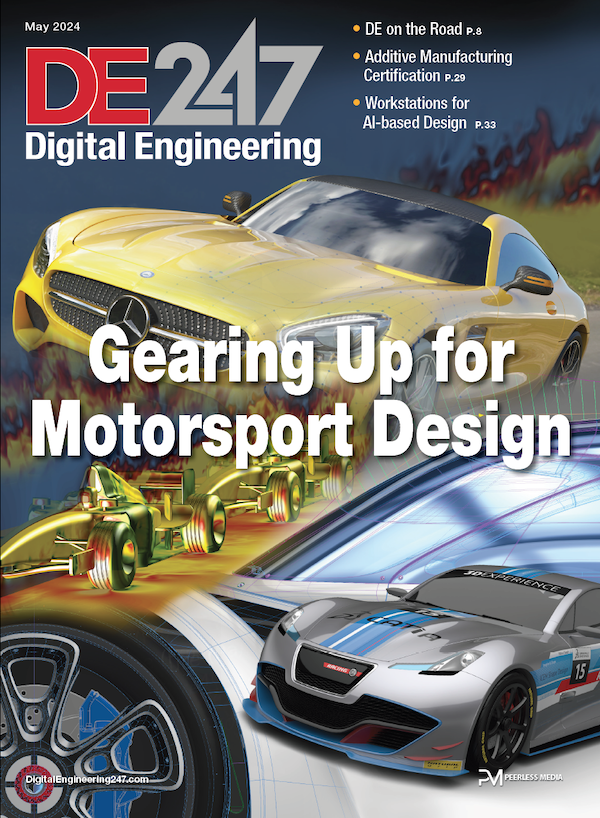Latest News
March 14, 2012
By DE Editors
Founded in January 2011 and based in Sweden, Vicura has a long track record of complete virtual development of manual transmissions and dry dual-clutch transmissions, as well as powertrain integration in a large amount of front-wheel- and all-wheel-drive applications.
Martin Schagerlind is a Vicura simulation engineer. He and his team of 20 engineers are responsible for a broad range of complex simulation and analysis testing, including system, structure and fluid mechanics. Schagerlind performs critical simulation and analysis to ascertain the strength, stiffness, thermal and dynamic behaviors of all possible transmission assemblies and components, including housings, shafts, gears, synchronizers, clutches, and more. Designs created in CAD software are sent to Schagerlind for simulation and analysis.

Figure 1: The original design fulfills the requirements, but Vicura had to reduce
as much mass as possible.
Before importing the designs into a meshing program, the geometry has to be simplified “and this process was difficult and time-consuming. Often, Schagerlind would have to send files back and forth to CAD experts, often taking days for each iteration. Schagerlind starting using SpaceClaim’s 3D Direct Modeler more than a year ago, and found it to be a software solution that solved many of his simulation and analysis challenges. Today, when designers send him CAD models, he uses SpaceClaim to sort out what to include in the analysis “saving time and improving the simulation process.
For each design, Schagerlind starts by opening the CAD data in SpaceClaim. He uses SpaceClaim to remove features that would complicate the mesh, such as rounds, small holes, and geometry outside the region that needs to be analyzed. When performing CFD, SpaceClaim extracts volumes to be analyzed.
Once ready, Schagerlind sends a Parasolid file to SimLab or to HyperMesh to create a mesh and add couplings, contact information, and boundary conditions. Finally, he saves the mesh as an Abaqus input file, finishes the preprocessing and runs the simulation in Abaqus.
Once Schagerlind has results, he uses SpaceClaim to modify the geometry “for example, adding material, fillets and bolts until he is confident that the concept will address issues discovered in the simulation.
After he has optimized the design, Schagerlind sends the CAD team his version of the model, where they can reconcile the changes in the detailed model.
“SpaceClaim is very efficient in helping me sort out what I need to test, and I am saving about 80% of my time that otherwise would have been spent in iterative loops with the CAD designers,” Schagerlind says.

Figure 2 (top): A modified design, with lower mass than the original design, still fulfills the
requirement. Figure 3: Rendered image of the final design, using SpaceClaim and KeyShot.
“It used to take days for me to have to request design changes from the CAD team,” he recalls. “Now I can make those changes, and it takes an hour, and I have much better control over optimizing the final design.”
Customer communications have been vastly improved, leveraging SpaceClaim with KeyShot to create realistic renderings. Schagerlind uses this approach in the bidding process, and when they are presenting design proposals to the customer. It has provided Vicura with a strong competitive edge, he says.
“Customers are very impressed when they can see the proposed product design realistically through SpaceClaim and KeyShot, and it clearly highlights the work we have done,” Schagerlind says. “It provides confidence to the customer that we have invested significant time and applied our expertise. Before we used SpaceClaim, when we showed our concepts as ordinary CAD models, the customers always felt there was a lot more work to do.”
For cross-section views of large assemblies, Schagerlind has found that SpaceClaim enables clarity for discussions with the designers.
“I use SpaceClaim every day, and it works really well,” he concludes. “The software has provided us with a tool that makes our engineers more productive, helps to win business and gives us a strong competitive edge. SpaceClaim saves me time, and it is extremely cost-effective compared with other products on the market.”
Info
KeyShot
SpaceClaim Corp.
Vicura
This article was adapted from a case study originally published by SpaceClaim Corp.
Subscribe to our FREE magazine, FREE email newsletters or both!
Latest News
About the Author
DE’s editors contribute news and new product announcements to Digital Engineering.
Press releases may be sent to them via [email protected].






